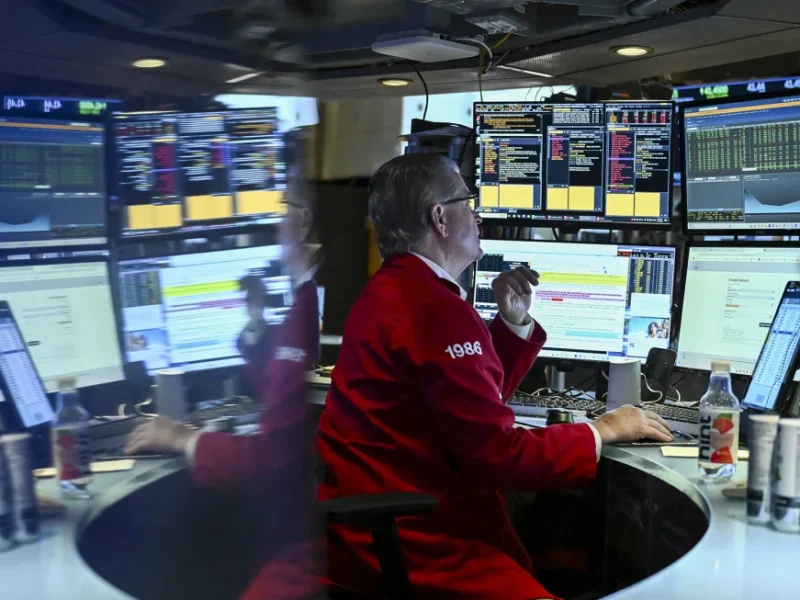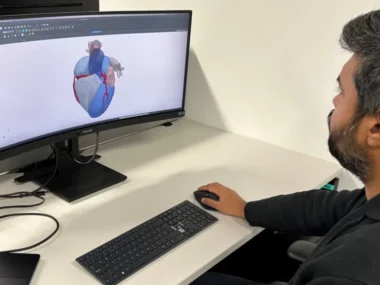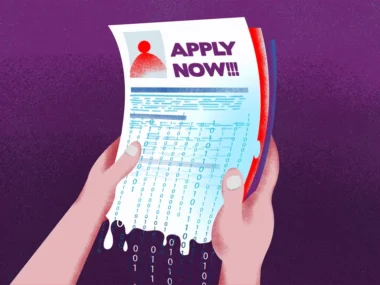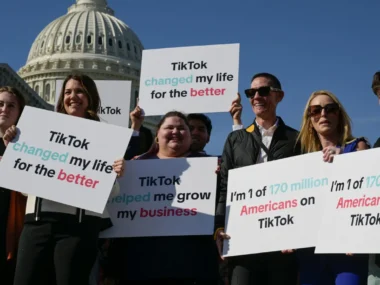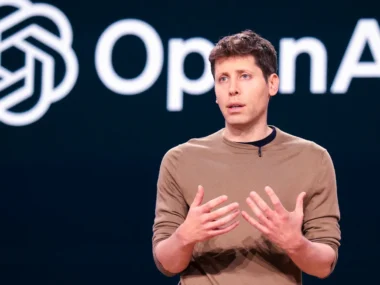Concerns over an AI bubble on Wall Street have been around since ChatGPT’s debut—meaning they’re still in their early stages. Is AI just another tulip mania, dot-com bubble, or overhyped financial product? Or is the skepticism itself overblown?
The answer, unsurprisingly, is complex. AI enthusiasm remains high—perhaps excessively so—sparking a growing divide among experts over the real value of generative AI, the technology powering chatbots like OpenAI’s ChatGPT, Google’s Gemini, and even Apple’s underwhelming text summaries.
Regardless of whether AI qualifies as a true “bubble,” it’s becoming clear that Wall Street may have overinvested in Silicon Valley’s latest obsession.
And if the technology’s limitations and uncertain consumer applications weren’t already cooling investor sentiment, the situation is about to get even more complicated. The looming uncertainty of Trump-era tariffs could hit tech investors with an entirely new set of challenges.
‘Trough of Disillusionment’
The first quarter of this year has been tough for tech stocks, weighed down by broader market uncertainty, including tariffs. However, there are also specific worries about AI, starting with the DeepSeek incident in January and culminating in a failed IPO from CoreWeave, an AI cloud computing startup backed by Nvidia, which has lost $1 trillion in market value.
The Nasdaq 100, heavily tech-focused, has dropped 10.5% this year, more than double the decline of the broader S&P 500. D.A. Davidson analyst Gil Luria described it as entering the “Trough of Disillusionment,” a phase in the Gartner hype cycle that follows an initial period of high expectations. He emphasized that this doesn’t mean AI won’t have a major impact, but it will likely take longer than anticipated.
Big Tech companies are investing billions in AI development and building massive data centers needed for future projects. However, Wall Street is growing impatient, as there’s been significant spending but little clarity on how these investments will translate into revenue.
Concerns over a recession impact AI.
The conversation around an AI “bubble” has intensified recently, driven by both legitimate concerns in the industry and ongoing speculation about a potential recession.
Alibaba Group Chairman Joe Tsai sparked discussion last week at an investment summit in Hong Kong, stating he believes a “bubble” is forming around data center construction. Analysts from TD Cowen also noted that Microsoft has canceled some data center projects, signaling concerns about future demand.
This uncertainty is unsettling investors, who are already dealing with other economic challenges. The consumer-driven growth that has helped the US avoid a recession since 2020 is showing signs of weakness. Inflation is rising, consumer spending is slowing as the job market becomes more unstable, and businesses are paralyzed by tariff uncertainty.
“We had been in ‘unlimited investment’ mode due to a strong economy that allowed companies to heavily invest in AI,” said Luria. “They invested far beyond actual demand for AI, which is something you can afford to do in a robust economy. But it’s a different story when the economy weakens.”
With economists now predicting a 50/50 chance of a US recession this year, even AI advocates are recalibrating their expectations. This shift has created a gradual release of air from the AI bubble, rather than a sudden burst.
Luria noted that the vision for AI will remain intact, even if investment levels decrease, as substantial funds have already been poured into companies—both large and small—pursuing commercially viable AI solutions, which have largely been an academic pursuit until now.
However, it will take time to see what the outcome is, as the global economy adjusts to whatever new conditions arise after the April 2 tariffs.
As Wedbush analyst Dan Ives put it in a research note: “The bubble talk might not matter if we fall into a Trump recession. In my 25 years of covering tech stocks and markets, we’ve seen several political events that have caused significant market uncertainty, and this Trump tariff announcement is among the most impactful.”

